More traffic chaos in Adelaide’s south as Main South Road commuters spill over amid Saltfleet Street flooding
Surging water at Port Noarlunga forced the closure of a busy road and sparked more traffic headaches while in the north a fallen tree also spark commuter chaos.
Weather
Don't miss out on the headlines from Weather. Followed categories will be added to My News.
Floodwaters swamped a key road at Port Noarlunga amid Monday’s wild weather, with traffic spilling onto surrounding road and sparking gridlock in Adelaide’s south.
Major traffic delays were reported along Main South Road as police diverted motorists away from Saltfleet St in Port Noarlunga, which was swamped by late afternoon as fierce weather pummelled the state.
The Southern Expressway was heavily congested just after 5pm, with bumper-to-bumper traffic stretching from Beach Rd exit at Noarlunga to the Seaford exit on Main South Rd.
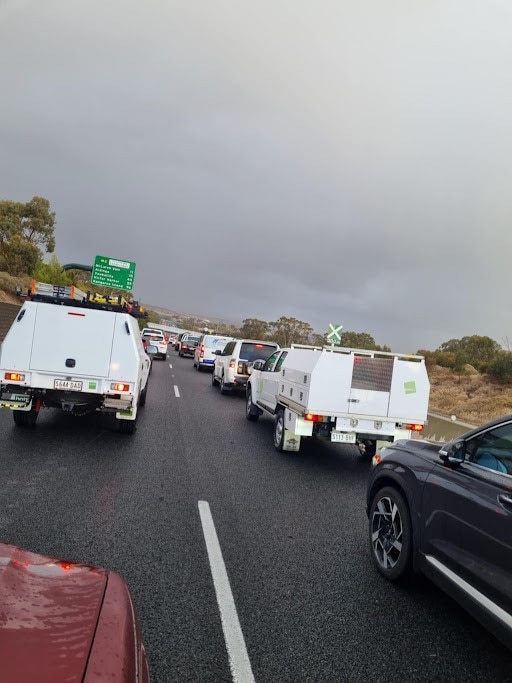
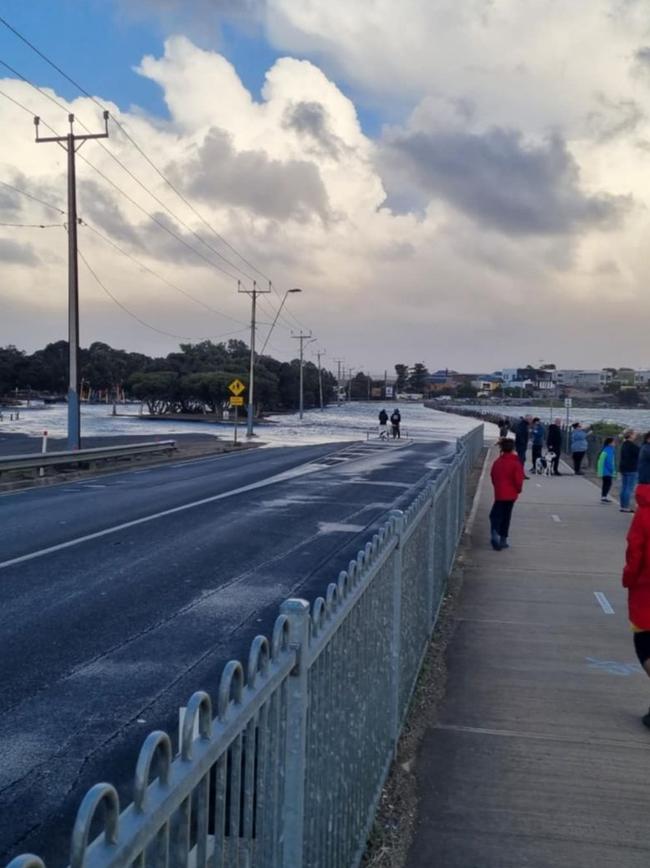
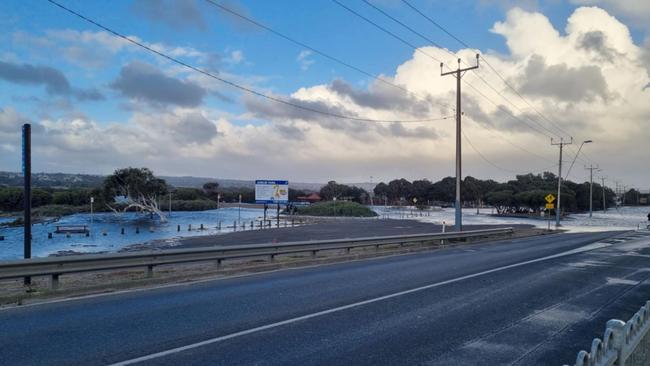
Police confirmed floodwaters began rising rapidly early Monday afternoon, eventually closing the roundabout exit and forcing traffic to be diverted back to Main South Rd, causing significant delays during the evening peak.
The area surrounding the Jubilee Wooden Adventure Playground is under water, with flooding into the newly upgraded carpark and kayak storage area.
Even local wildlife has been impacted — with a kangaroo filmed swimming through the now-flooded marshland, which is normally dry.
Traffic chaos in Adelaide’s north
Main North Rd was closed southbound from Curtis Rd around midday, after a large tree was snapped by strong winds, blocking two lanes of traffic.
The closure is causing major disruptions for northern suburbs commuters as severe weather continues to lash the state.
Emergency crews have since removed the tree and re-opened the road.
Flooding has also hit parts of the state with creeks in the the South East town of Kingston overflowing and several roads closed.
It comes as South Australia is lashed by the most powerful cold front so far this year, with destructive winds and heavy rain sweeping across the state.
From midnight, the SES responded to more than 230 calls for assistance, with chief of staff Robert Charlton saying the number had been “steadily increasing” since 10am. Most incidents involved trees down on roads or property and minor flood damage.
By 8pm, the number of incidents had grown to over 360, with the SES still attending more than 40 ongoing incidents.
“Many of the calls have come from metro Adelaide, the Fleurieu Peninsula, Kangaroo Island and the Mid North,” Mr Charlton said.
“It was our first blast of winter storm season and hopefully this is a timely reminder for people to help prepare their properties.”
At the peak of the storm, more than 16,000 SA Power Networks customers were without electricity, with about 13,000 still affected by early afternoon.
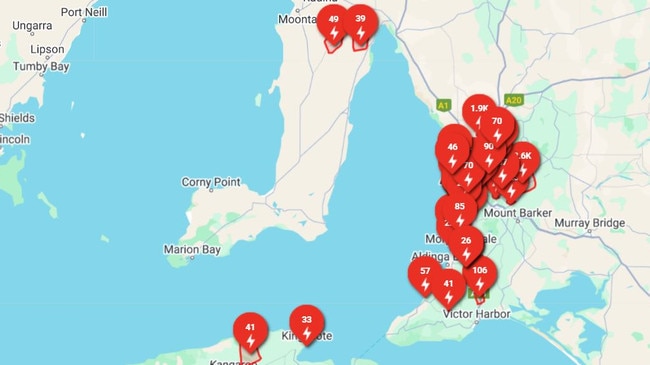
According to the SA Power Networks website, there were 40 recorded outages impacting more than 12,900 homes and businesses as of 1pm on Monday.
The Advertiser understands the Marion Shopping Centre wa in darkness with a power outage reported at the large Westfield outlet during the morning.
Power outages in Marion also caused traffic lights across the suburb to go out.
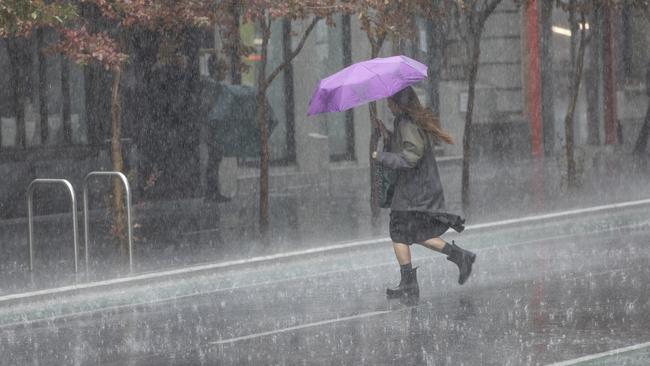
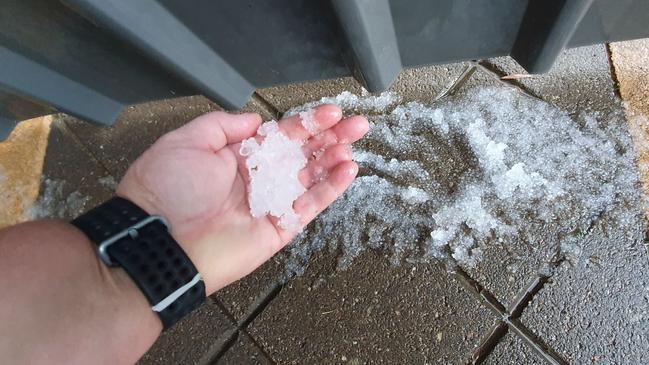
Further south, emergency services have been dispatched to homes in Victor Harbor with reports that flood water has entered homes – as well as a classroom at Victor Harbor Primary School – with water coming in through doorways.
A sudden downpour forced the popular Flying Fish restaurant in Port Elliot to temporarily shut its doors after flash flooding swept through the venue early Monday morning.
Venue manager Christy Marie Delaney said the water came fast and without warning, catching staff off guard.
“We were fine for the first half an hour, but then there’s a crazy downpour just kind of flooded through our roof and through our gutters, making sections of our restaurant and venue just completely flood inside,” Ms Delaney said.
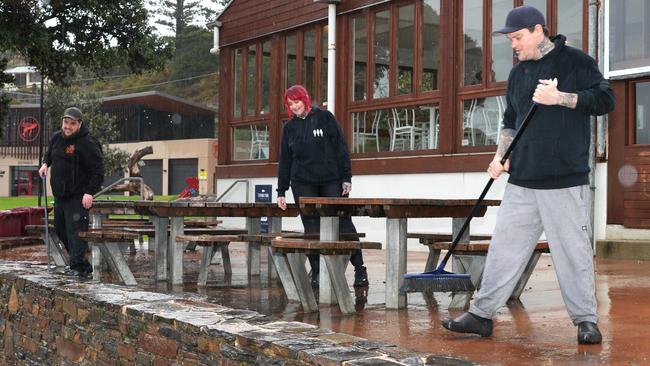
The restaurant, located at the bottom of a hill, was particularly vulnerable as the volume of rainfall overwhelmed drainage systems.
“The drains can’t quite handle it, so that’s why we have that bit of overflow,” she said.
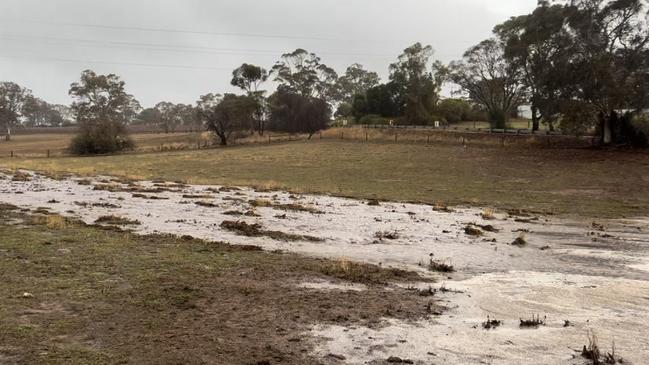
In Victor Harbor, locals out for their morning beach walks were met with strong swells and visible erosion along the shoreline.
Resident Mark Kempster described the morning’s intense conditions.
“It started to rain at about 6am and then it was quite blustery, and we had some lightning and some thunder for a while,” he said.
“The water level is still pretty high.”
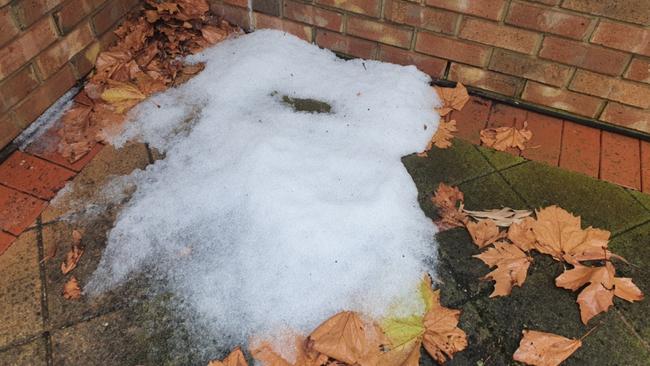
A Stobie pole with power lines is down at Port Willunga with a power outage reported at Inman Valley.
Gusts of more than 100km/h have hit the southeast, the coastal fringe and the Flinders Ranges, with the strongest winds expected later in the afternoon.
Waves of 6 to 9 metres are forecast along the state’s exposed coastlines, and a coastal hazard warning remains in place for elevated sea levels and abnormally high tides across the gulfs, including Adelaide.
It comes after the Bureau of Meteorology warned residents to prepare for damaging and destructive winds of up to 125 km/h, issuing a severe weather warning for most of the state.
Sealink ferries to Kangaroo Island were cancelled and a flight to Port Lincoln axed.
The forecast was for up to 20mm of rain with a temperature high of 17C.
Senior meteorologist Hannah Marsh from the Bureau of Meteorology said the storm was one of the strongest weather events in recent memory.
“It’s one of the worst systems we’ve seen definitely in the last 12 months, and possibly even before last winter,” she said.
“We’ve not seen a significant cold front since at least last winter.”
Rainfall totals overnight on Sunday reached 31mm at Parndana on Kangaroo Island, while since 9am on Monday, May 26, 17mm was recorded at Cudlee Creek and Millbrook Reservoir.
The SES continues to urge caution across the state.
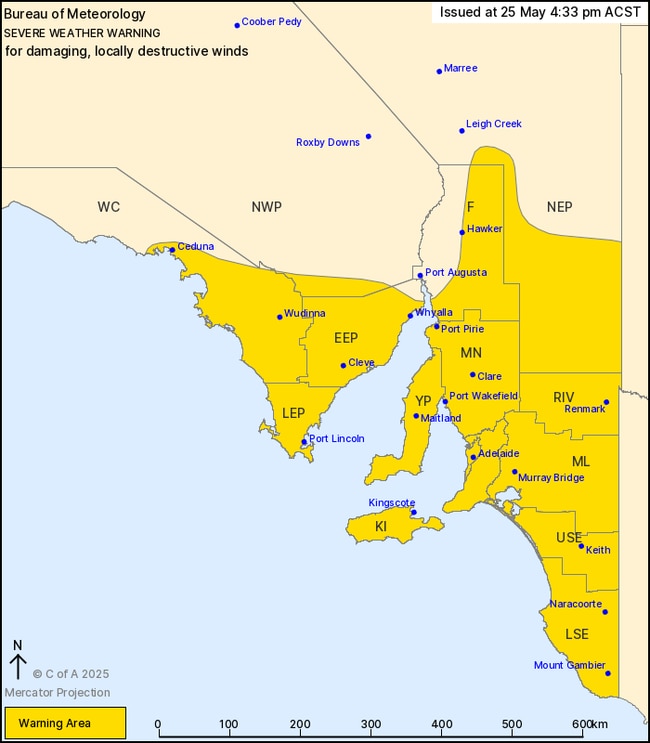
A severe weather warning for abnormally high tides is also active for coastal parts of the state, including Adelaide and Port Lincoln, while Whyalla, Renmark, Mount Gambier and Ceduna also faced severe weather warnings.
The State Emergency Service advises that people should keep clear of fallen power lines, move vehicles under cover or away from trees, secure or put away loose items around your property and stay indoors, away from windows, while conditions are severe.




